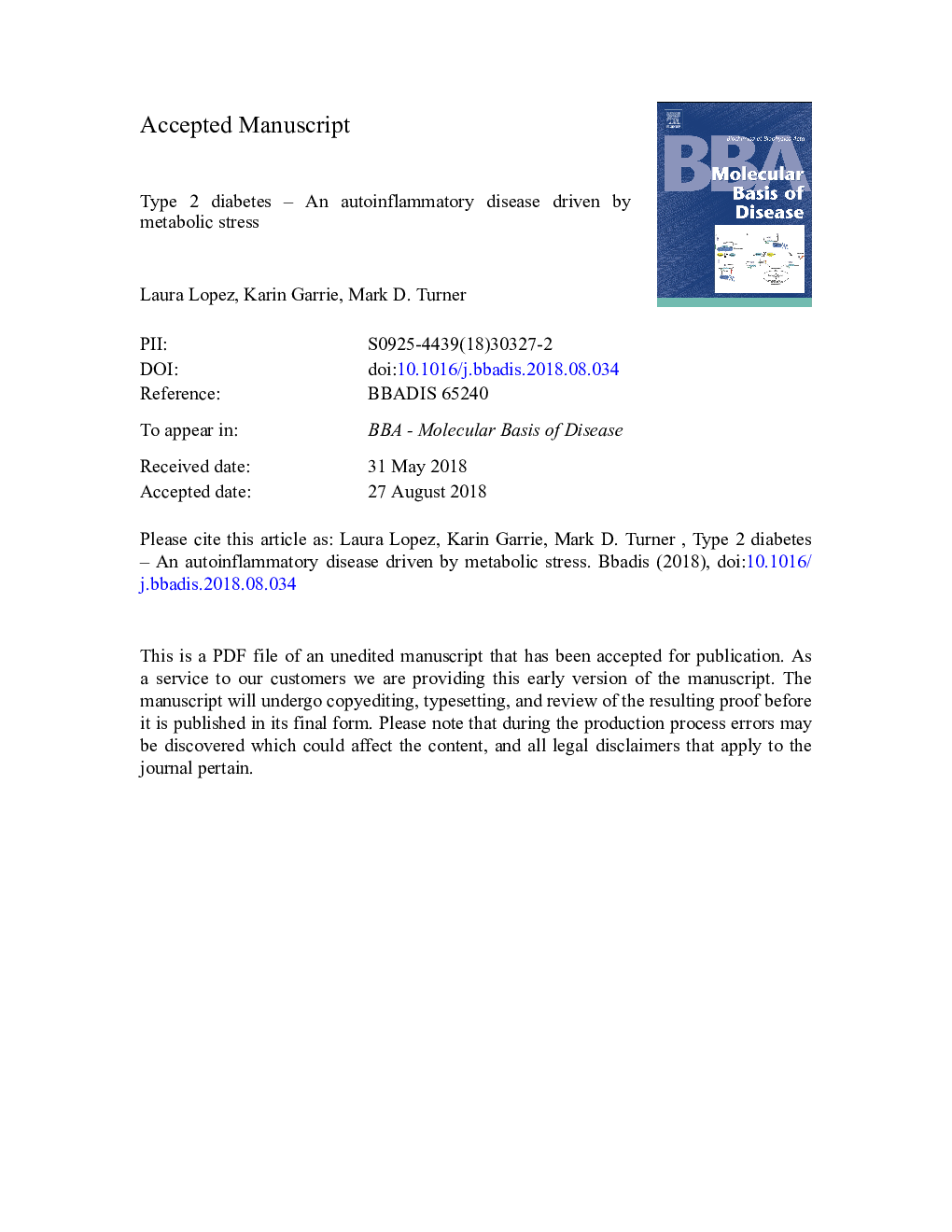| Article ID | Journal | Published Year | Pages | File Type |
|---|---|---|---|---|
| 10136972 | Biochimica et Biophysica Acta (BBA) - Molecular Basis of Disease | 2018 | 75 Pages |
Abstract
Type 2 diabetes has traditionally been viewed as a metabolic disorder characterised by chronic high glucose levels, insulin resistance, and declining insulin secretion from the pancreas. Modern lifestyle, with abundant nutrient supply and reduced physical activity, has resulted in dramatic increases in the rates of obesity-associated disease conditions, including diabetes. The associated excess of nutrients induces a state of systemic low-grade chronic inflammation that results from production and secretion of inflammatory mediators from the expanded pool of activated adipocytes. Here, we review the mechanisms by which obesity induces adipose tissue dysregulation, detailing the roles of adipose tissue secreted factors and their action upon other cells and tissues central to glucose homeostasis and type 2 diabetes. Furthermore, given the emerging importance of adipokines, cytokines and chemokines in disease progression, we suggest that type 2 diabetes should now be viewed as an autoinflammatory disease, albeit one that is driven by metabolic dysregulation.
Related Topics
Life Sciences
Biochemistry, Genetics and Molecular Biology
Ageing
Authors
Laura L. Gonzalez, Karin Garrie, Mark D. Turner,
